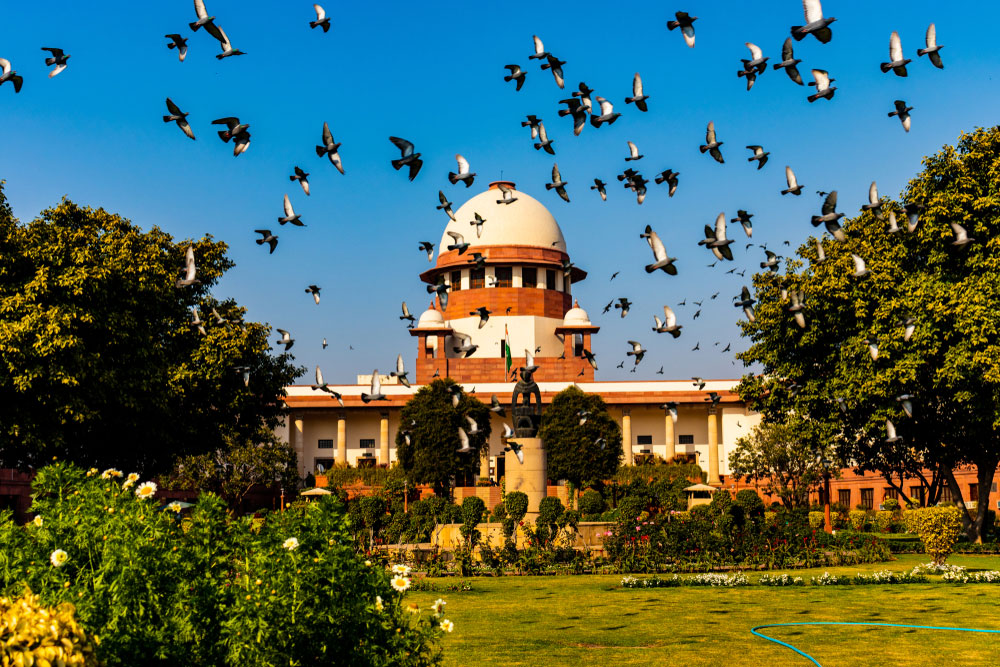The Supreme Court on Wednesday granted civil rights activists Gautam Navalakha and Anand Teltumbde another week to surrender in the 2018 Bhima Koregaon case, rejecting their plea that any jail time during the Covid-19 pandemic would be like a death sentence.
“Though we expected that the accused would surrender, honouring the order of this Court, they have not done
so. We are told that in Bombay, the courts are functioning. It would have been appropriate for the accused to surrender as the courts are open and not totally closed,” the bench of Justices Arun Mishra and Indira Banerjee said in an order.
“However, since the petitioners have enjoyed the protection for long, by way of last opportunity, we extend the time granted to surrender for one week. We make it clear that there shall not be any further extension of time. This order shall not be treated as a precedent.”
Earlier, on March 16, the court had dismissed the plea for anticipatory bail the activists had filed and asked them to surrender within three weeks to face trial in connection with cases Maharashtra police had registered against them under the Unlawful Activities Prevention Act (UAPA). The deadline ended on Monday night.
The two are accused of being present at a meeting of the Elgar Parishad in Pune on December 31, 2017, where active CPI (Maoist) members had supposedly raised inflammatory slogans and engaged in activities aimed at inciting terrorist and other unlawful acts.
The next day violence had broken out at a place popularly known as Bhima Koregaon, where a large number of people were said to have gathered to mark the 200th anniversary of a battle in which English soldiers had defeated the Peshwa with the help of Mahar troops. One person died in the violence.
Pune police have also claimed that some of the organisers of the Elgar Parishad had planned to assassinate the Prime Minister.
On Wednesday, during the brief arguments held through video-conference, senior advocate Kapil Sibal who appeared for the activists pleaded that they be allowed more time to surrender so that they didn’t contract the disease in jail.
Sibal told the court the two activists were over 65 years old and it wouldn’t be advisable to send them to jail now.
“Going to prison during the coronavirus is a virtual death sentence,” the senior counsel argued.
Solicitor-general Tushar Mehta opposed the plea, saying the accused were merely trying to buy more time.
“This is only a mechanism to buy time and both the activists are facing serious charges,” Mehta, who appeared for the Maharashtra government, said.
Last month, while rejecting the activists’ plea for anticipatory bail, the court had referred to Section 43D(4) of the UAPA, which prohibits grant of anticipatory bail to an accused.
The section says: “Nothing in Section 438 of the code shall apply in relation to any case involving the arrest of any person accused of having committed an offence punishable under this Act.”
The court had last month directed states and Union Territories to set up high-powered committees to consider if undertrials and convicts, who face a maximum of seven years in jail, could be released on parole or interim bail to prevent the spread of the coronavirus in India’s heavily crowded prisons.
The committees have already directed the release of a number of such prisoners.

